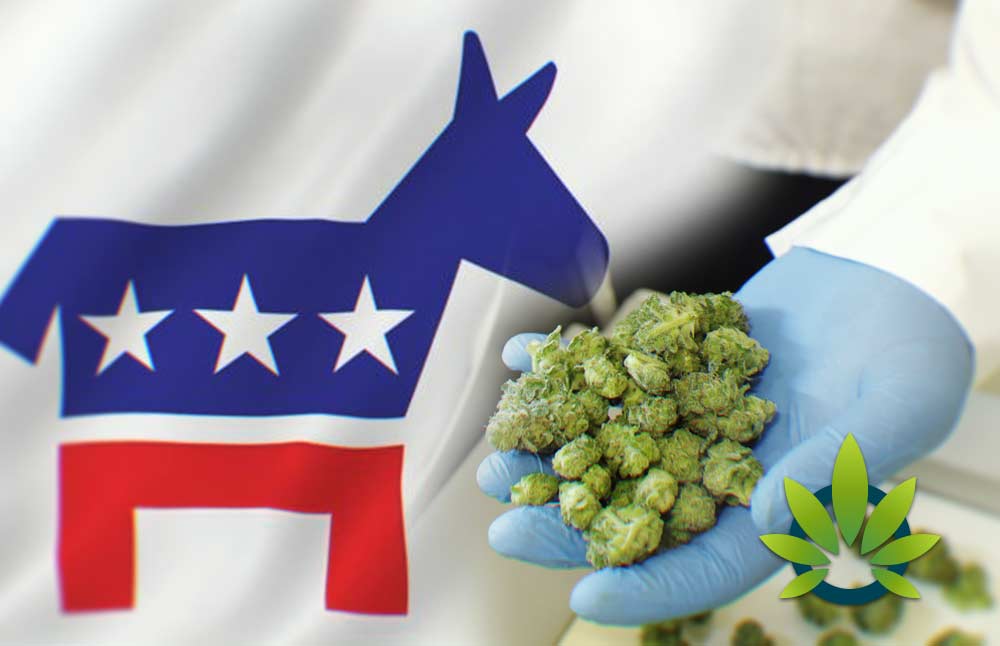Legal & Regulation
Democrat Spending Bill Protects Medical Marijuana, But DC Does Not Legalize Sales

Last month, provisions providing for the protection for cannabis that were in effect since 2014, expired with the government shutdown. As a result, many individuals relying on medical marijuana to help manage their health conditions were left in an uncertain place. The condition become even more uncertain with federal drug enforcement authorities and prosecutors being exempt from the furlough.
Under Section 537 of the proposed bill:
“”None of the funds made available under this Act to the Department of Justice may be used, with respect to any of the States of Alabama, Alaska, Arizona, Arkansas, California, Colorado, Connecticut, Delaware, Florida, Georgia, Hawaii, Illinois, Indiana, Iowa, Kentucky, Louisiana, Maine, Maryland, Massachusetts, Michigan, Minnesota, Mississippi, Missouri, Montana, Nevada, New Hampshire, New Jersey, New Mexico, New York, North Carolina, North Dakota, Ohio, Oklahoma, Oregon, Pennsylvania, Rhode Island, South Carolina, Tennessee, Texas, Utah, Vermont, Virginia, Washington, West Virginia, Wisconsin, and Wyoming, or with respect to the District of Columbia, Guam, or Puerto Rico, to prevent any of them from implementing their own laws that authorize the use, distribution, possession, or cultivation of medical marijuana.”
If the bill is approved by the House and Senate, the president is left to sign it into law. If he does so, the bill would provide for the enforcement of medical marijuana operations that have been legalized by the states. The issue here is that there is still a big question of “if,” especially given that the president has other proprieties, such as funding the proposed wall. Further, certain members of the Chamber’s Appropriation Committee have stated that it does not make sense to vote on legislation that the president will not sign.
In any event, the Democrats’ bill does not include any provisions for medical marijuana. It also features some unfortunate elements for those who support marijuana reform. However, the bill also features a rider that prevents Washington, D.C. from using funds to legalize and regulate cannabis use for adults.
This has not stopped some politicians, such as Mayor Muriel Bower (D), who stated last year that she intended to introduce a bill to legalize marijuana commerce in the District of Columbia in 2019. If the legislation passes, though, it may thwart her efforts.
Those who advocate for marijuana take the position that it is unlikely that the final bill will feature a ban on legalizing marijuana in D.C. According to Justin Strekal, NORML Political Director, “Democratic appropriators have been incredibly receptive to ending the absurd prohibition of allowing the District of Columbia to implement their own laws as voters intend. Those who would week to maintain this punitive restriction do so against the very foundation of our federalist structure under the Constitution.”
There is a possibility that broader rider will be implemented, one that protects states that have recreational marijuana laws. If anything, this could take place next year. Nita Lowey, the author of the current spending bill, stated “The only difference between what I will introduce on Thursday and the Senate bills from the 115th Congress are technical, conforming, and scorekeeping adjustments.”
The next big battle on marijuana and riders will likely be in 2020 and the discussion could start as soon as this spring.
-

 Benefits5 years ago
Benefits5 years agoHemp Oil Health Benefits Vs Side Effects: Proper Use And Optimal Dosage Guide
-

 Marijuana Movement5 years ago
Marijuana Movement5 years agoNew Medical Marijuana Story Showcases Cannabis And Epilepsy’s 176 Year Old Connection
-

 Benefits5 years ago
Benefits5 years agoLiposome Benefits Prove to be a Perfect Pair for CBD (Cannabidiol)
-

 CBD (Cannabidiol)5 years ago
CBD (Cannabidiol)5 years agoCBD Oil For Knee Pain: Symptoms, Causes, Diagnosis, Treatment And Prevention Guide
-

 Guides5 years ago
Guides5 years agoTop 24 CBD Oil Supplements [2019]: Best Cannabidiol Products for Healthy Benefits and No Side Effects
-

 CBD Oil (Cannabidiol)5 years ago
CBD Oil (Cannabidiol)5 years agoKeylor Nutrition American Hemp Gummies: Premium No-CBD Oil Gummy Bears?
-

 CBD (Cannabidiol)5 years ago
CBD (Cannabidiol)5 years agoCBD Oil Legality in Connecticut: Cannabidiol State Law Regulations in CT, USA
-

 Guides5 years ago
Guides5 years agoCachet CBD: Certified Organic Plant-Based Hemp Cannabidiol Drops, Gummies and Topical













